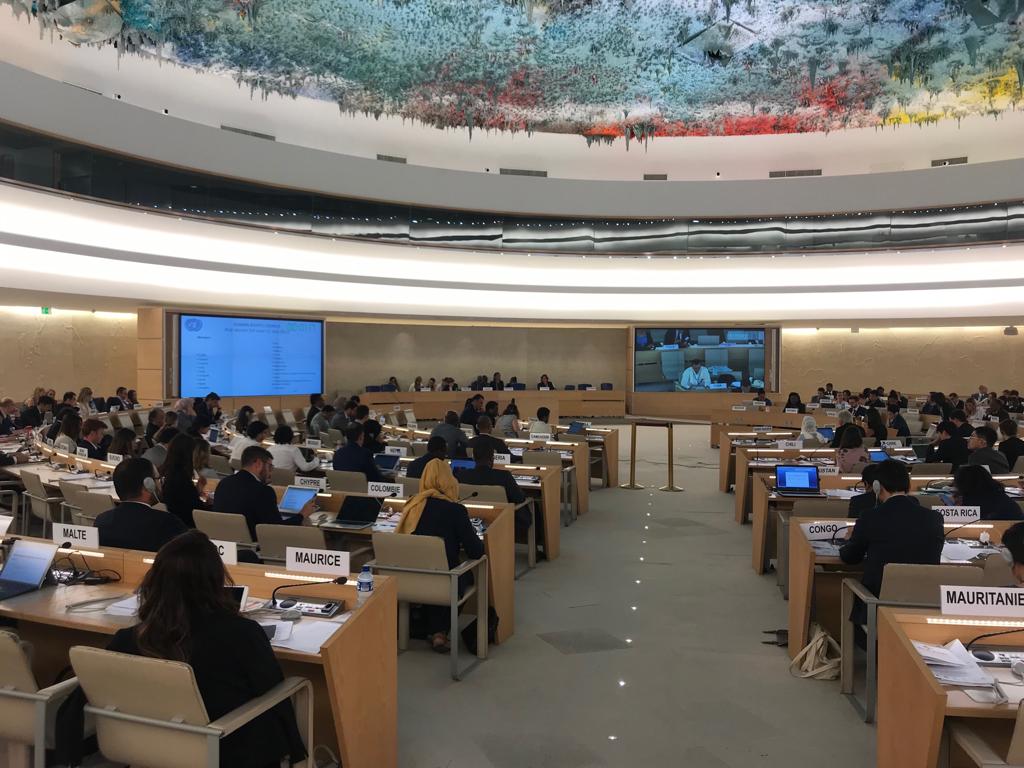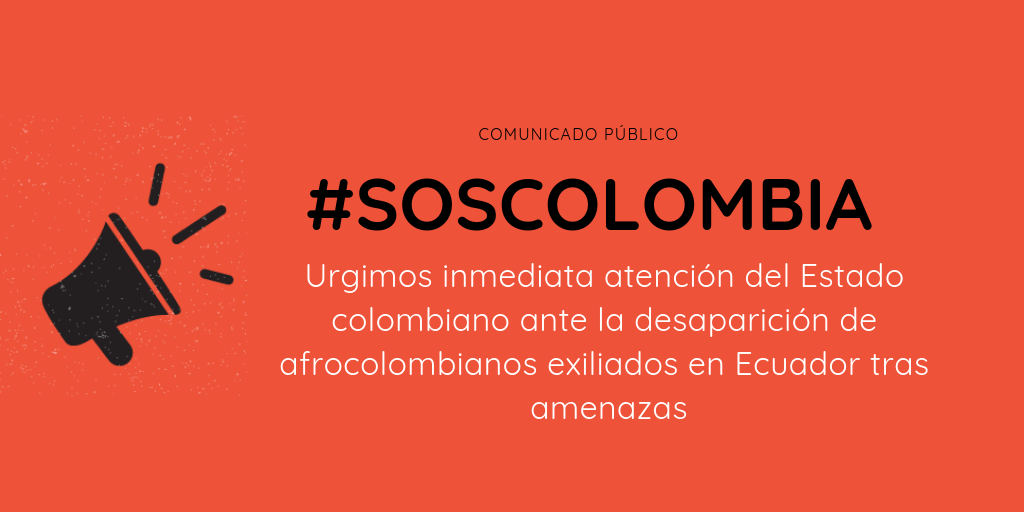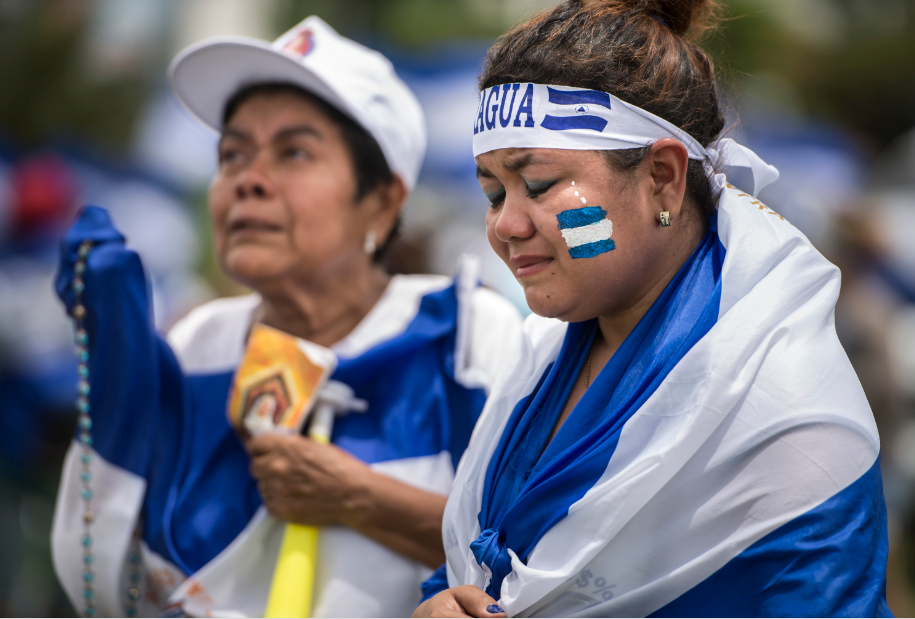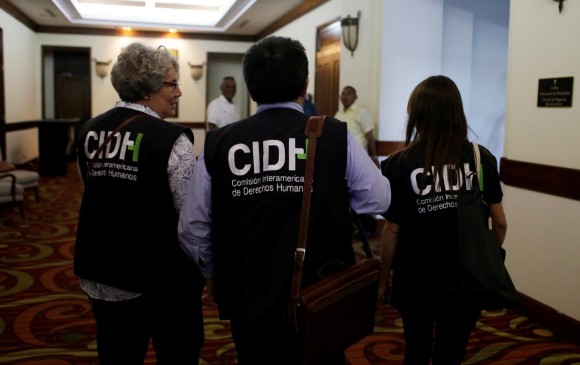Venezuela, Nicaragua and LGBTI issues: key points of the 41st session of the UN Human Rights Council
Geneva, July 16th 2019. A report on the human rights situation in Venezuela presented by the High Commissioner for Human Rights Michelle Bachelet and an update on the state of […]

Geneva, July 16th 2019. A report on the human rights situation in Venezuela presented by the High Commissioner for Human Rights Michelle Bachelet and an update on the state of human rights in Nicaragua presented by Deputy High Commissioner Kate Gilmore, as well as the mandate renewal of the UN independent expert on sexual orientation and gender identity, were all key agenda items during the 41st session of the UN Human Rights Council.
The 41st session of the Human Rights Council, which took place between June 24 and July 12 at the UN headquarters in Geneva, Switzerland, was marked by the Latin American agenda. In her opening speech, Bachelet expressed concern about the setbacks experienced in Latin America that affect important achievements made by victims, human rights defenders and political leaders in terms of reconciliation and transitional justice in recent decades.
The High Commissioner warned: “today we are witnessing a worrisome trend of denial of the facts, even extending to the passage of laws intended to undo the progress made in seeking justice.”
As an example, she cited the recent approval of the Amnesty Law in Nicaragua and the attempts of Guatemala and El Salvador to pass similar laws. Faced with this situation, she urged “these and all other countries not to adopt regulations that prevent serious human rights violations from being prosecuted and duly punished.” She also said that “accountability, with fair trials, protects societies from future radicalisation and violence.”
The Human Rights Council is the intergovernmental body of the United Nations that is responsible for strengthening the promotion and protection of human rights. It has the competence to discuss all human rights thematic issues and to call for change through recommendations. This body also has the function of empowering special procedures and carrying out the Universal Periodic Review (UPR). It meets three times a year: in February, June and September.

About Venezuela
At the request of the Human Rights Council, the Office of the UN High Commissioner for Human Rights (OHCHR) prepared a report on the human rights situation in Venezuela that was presented at this session.
The High Commissioner began the presentation by commenting on her recent visit to Venezuela, where she was able to meet with various sectors of society, which she understands is undoubtedly a sign of the Venezuelan authorities to commit to a constructive dialogue. She also noted that the report cannot ignore that the rule of law in Venezuela has been “seriously damaged” in recent years. Today, the rights to freedom of expression, to peaceful assembly and to participate in public life all entail threats against the life and physical integrity of those who exercise them.
The report details the gradual militarization of state institutions during the last decade. The pro-government armed groups known as colectivos have contributed to the deterioration and have managed to impose a social order of generalized repression. The OHCHR documented at least 66 deaths during the protests carried out from January to May 2019, of which 52 are extrajudicial executions directly attributable to Government security forces or to the colectivos. “In the previous year, the government of Venezuela registered 5,287 deaths due to ‘resistance to authority’ and between January 1st and May 19th of this year, another 1,569 people were killed, according to the government’s own statistics. Others sources suggest that the figures could be much higher.”
The High Commissioner expressed concern about the excessive and lethal use of force, saying that such force should be classified as extrajudicial execution and requires an investigation aimed at condemning the perpetrators and guaranteeing the non-repetition of similar acts. The report notes, however, that most of the victims have not yet had access to justice or adequate reparation.
Meanwhile, the people of Venezuela continue to face an economic crisis that is seriously affecting the fulfillment of economic, social and cultural rights. This crisis has also been exacerbated by the recent economic sanctions that are affecting the ability of the State to guarantee the population’s access to medical services and the right to food. Many public services such as the healthcare system have collapsed, the High Commissioner stressed in her speech, stating that the lack of basic medicines is having serious consequences, even causing deaths; also, the lack of contraceptive methods is forcing many women to continue pregnancies in circumstances of extreme precarity by forcing them to take care of children who they will not be able to feed. According to the UN Office for the Coordination of Humanitarian Affairs (OCHA), by March 2018, around seven million Venezuelan people, a quarter of the total population, will need humanitarian assistance.
Hunger and poverty have forced many to flee in conditions of extreme vulnerability. The protection of their human rights, says the High Commissioner, is a matter of extreme urgency. Bachelet highlighted the situation of indigenous people in Venezuela, which is also extremely worrisome, given the loss of their ancestral territories and natural resources, militarization, the effects of mining and the lack of adequate access to water and food.

About Nicaragua
The Deputy High Commissioner presented the update on the human rights situation in Nicaragua. This intervention was held as part of the resolution of the Human Rights Council for the Promotion and Protection of Human Rights in Nicaragua (Resolution A/HRC/40/ L8) approved in April 2019, which also provides for the presentation of a report in the following Council session in September of this year.
In her oral intervention, Deputy High Commissioner Kate Gilmore stressed that one year after the violent repression of demonstrations throughout the country, which killed more than 300 people, injured 2,000 and put more than 70,000 people in exile, human rights violations committed during that crisis remain unresolved. Peaceful protest and dissent continue to be repressed.
She also noted that, despite the Nicaraguan authorities’ claim that they have freed all those arrested in the context of the protests, more than 80 people could still be in custody under severe conditions of detention. The OHCHR has even received reports of torture and mistreatment. Gilmore urged the release of all persons arbitrarily detained for their participation in the protests or for expressing dissenting or critical opinions, including those who are still under alternative measures to incarceration, and reiterated the call to the Nicaraguan authorities to carry out immediate, impartial and effective investigations into the allegations of torture and violent acts in custody.
Regarding the Amnesty Law and the Law of Integral Attention to Victims, she emphasized that nether guarantees the right of victims to truth and reparation and that they were adopted without sufficient consultation with civil society or victims’ organizations. One of the most critical points of her speech was the reference to the work of the OHCHR, the Inter-American Commission on Human Rights (IACHR) and the Interdisciplinary Group of Independent Experts (GIEI, for its initials in Spanish) of the Organization of American States. Although these agencies have managed to document serious human rights violations, the Government continues to deny the responsibility of the state or its professional agents. The National Police has continued to systematically deny authorization for civil society meetings and to arbitrarily arrest people who attempt to demonstrate, with episodes of excessive use of force. The Deputy High Commissioner also showed concern for human rights defenders, community leaders, media journalists and civil society organizations who continue to be the target of attacks, threats, harassment and constant surveillance.
She ended her speech by calling on the authorities to participate in a genuine, meaningful and inclusive dialogue to address the legitimate demands of justice and reparation and to undertake institutional and electoral reforms. She recalled her office’s willingness to support the Nicaraguan Government in the fulfillment of its international obligations regarding human rights.

About the renewal of the UN Independent Expert on protection against violence and discrimination based on sexual orientation and gender identity (IE SOGI)
Victor Madrigal, an independent expert on SOGI, began his speech by recalling that this year marks the 50th anniversary of the Stonewall protests and that his mandate is a necessary response to the abuse that the LGBT community throughout the world continues to suffer. He shared some data collected in a recent report that presented violence and discrimination based on sexual orientation or gender identity. For example, 60% of bisexual women have been victims of rape, physical violence and/or harassment by an intimate partner in their lives; trans people have a life expectancy of 35 years; and half of LGBT students have been victims of harassment.
The campaign behind the renewal of this mandate was an example of coordination and shared effort between civil society organizations and diplomatic missions that endorsed the protection of the human rights of LGBT people. Special mention should be made to the Latin American region since Argentina, Brazil, Chile, Colombia, Costa Rica, Mexico and Uruguay were the countries that promoted the resolution to renew the mandate, which more than 50 co-sponsoring countries later joined. Their negotiating skills and constructive spirit earned them the gratitude of several council members. The resolution had to face ten hostile amendments led by Pakistan and seconded by the Organization of Islamic Cooperation with the exception of Albania and Tunisia, which were all rejected. The mandate was renewed with 27 votes in favor, 7 abstentions and 12 votes against, among which there were no Latin American countries. Only Cuba abstained in the voting to reject these hostile amendments, but at last voted in favor of the renewal.
The call to the Council for the renewal of the Independent Expert of the UN on SOGI was supported by 1,312 non-governmental organizations from 174 States and territories. After the voting, the renewal of the mandate filled the room and the corridors with an emotion and a joy that perhaps can be captured through the words of gratitude of the activist Andrea Ayala: “all of us here work for people whose names or skin color we don’t know, all we know is that they need us and here we will continue to work together.”

